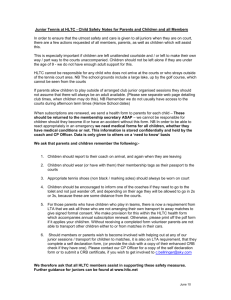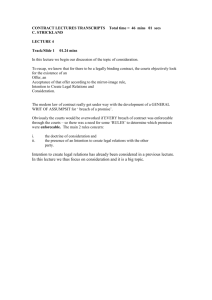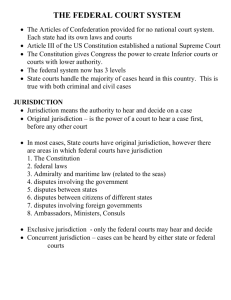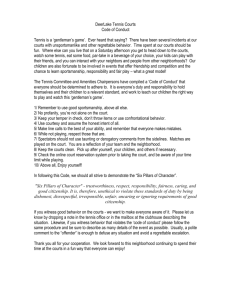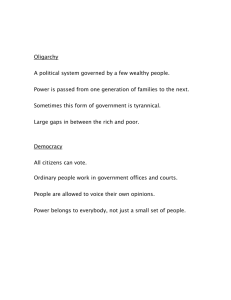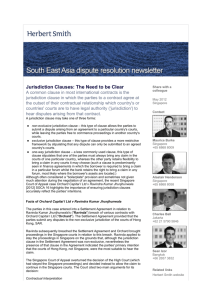File - Mrs. Wilkes' Classes
advertisement
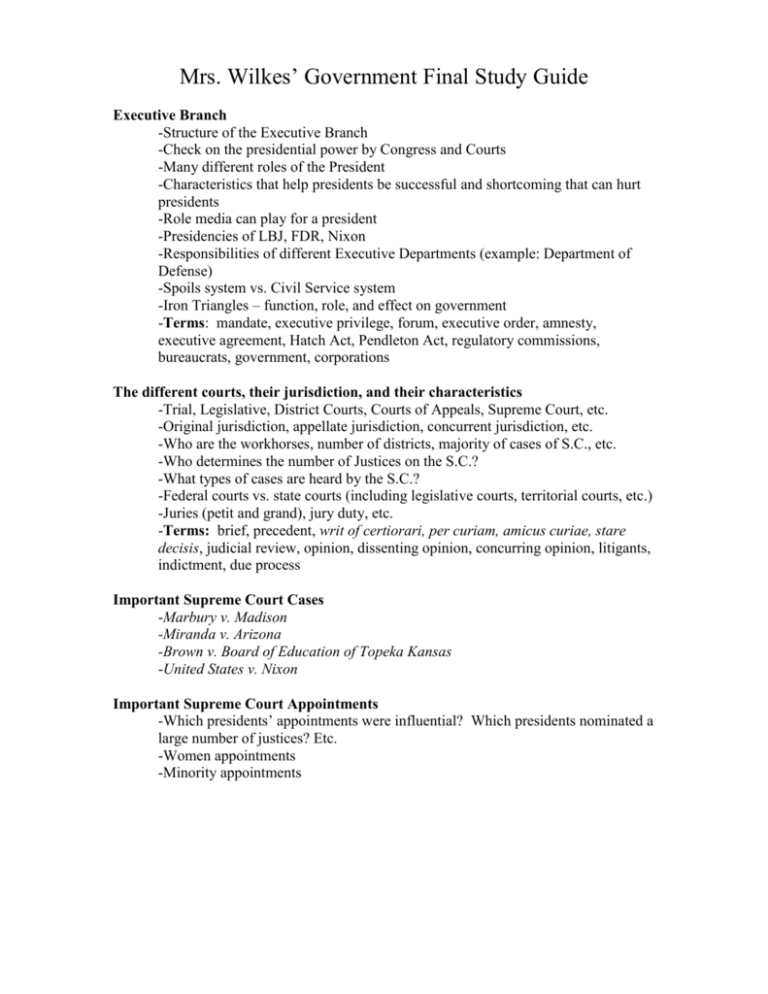
Mrs. Wilkes’ Government Final Study Guide Executive Branch -Structure of the Executive Branch -Check on the presidential power by Congress and Courts -Many different roles of the President -Characteristics that help presidents be successful and shortcoming that can hurt presidents -Role media can play for a president -Presidencies of LBJ, FDR, Nixon -Responsibilities of different Executive Departments (example: Department of Defense) -Spoils system vs. Civil Service system -Iron Triangles – function, role, and effect on government -Terms: mandate, executive privilege, forum, executive order, amnesty, executive agreement, Hatch Act, Pendleton Act, regulatory commissions, bureaucrats, government, corporations The different courts, their jurisdiction, and their characteristics -Trial, Legislative, District Courts, Courts of Appeals, Supreme Court, etc. -Original jurisdiction, appellate jurisdiction, concurrent jurisdiction, etc. -Who are the workhorses, number of districts, majority of cases of S.C., etc. -Who determines the number of Justices on the S.C.? -What types of cases are heard by the S.C.? -Federal courts vs. state courts (including legislative courts, territorial courts, etc.) -Juries (petit and grand), jury duty, etc. -Terms: brief, precedent, writ of certiorari, per curiam, amicus curiae, stare decisis, judicial review, opinion, dissenting opinion, concurring opinion, litigants, indictment, due process Important Supreme Court Cases -Marbury v. Madison -Miranda v. Arizona -Brown v. Board of Education of Topeka Kansas -United States v. Nixon Important Supreme Court Appointments -Which presidents’ appointments were influential? Which presidents nominated a large number of justices? Etc. -Women appointments -Minority appointments Constitution and Civil Liberties -establishment clause -Free exercise clause -due process clause -Terms: shield laws, prior restraint, gag order, freedom of assembly, sedition, pure speech, symbolic speech, defamatory speech, incorporation, Communications Decency Act, Family Education and Privacy Act, Freedom of Information Act, Sunshine Act, double jeopardy, felony, parochial schools Citizenship -Responsibilities of citizens -Who controls immigration policy according to the Constitution? -Qualifications for citizenship -Process of naturalization -Trends in immigration throughout U.S. History -Terms: jus soli, jus sanguinis, naturalization, resident alien, illegal alien, expatriate and expatriation, refugee Elections/Campaigning -Party structure and nominating procedure -One-party, two-party, multi-party system (role of third parties in the American system) -Voting and universal suffrage: beliefs of founders, changes in electorate, hurdles for minority groups, etc. -Interest groups – role in campaigns, purpose, membership, lobbying, etc. -Importance of image in a campaign -Primaries – closed vs. open -Electoral college – number of electoral votes, process, election day for president -Terms: propaganda, PAC, Federal Election Commission, Fifteenth Amendment, grandfather clause, Voting Rights Act, liberal, conservative, moderate, independent, card stacking, cross-pressured voter, straight-party ticket, coalition, precinct





